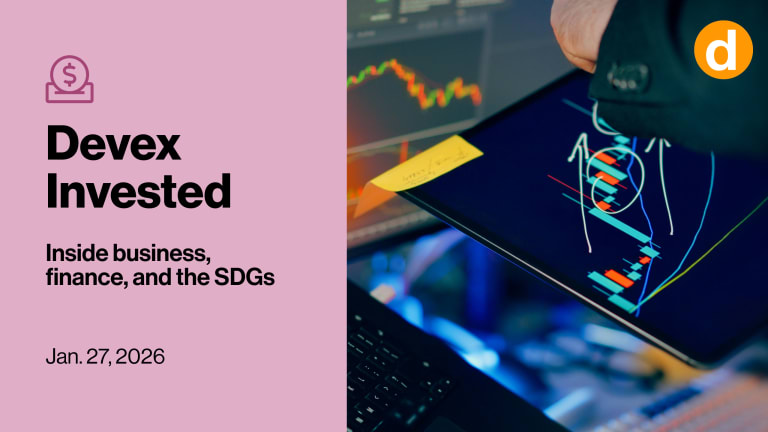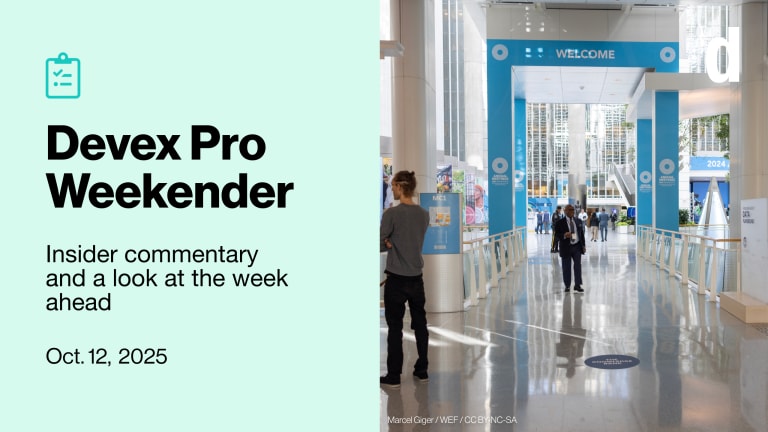Getting shareholders to cough up more money can be slow going for a multilateral development bank. IDB Invest, the private-sector arm of the Inter-American Development Bank, has been pushing for a capital increase for more than a year.
What we can exclusively tell you now is how much money the institution is asking for: $3 billion to $4.5 billion. That’s according to IDB Invest CEO James Scriven, who says the funding will allow it to take on more risk, lend more, and design projects to combat climate change.
“If I really want to have an impact on the region, this is what I need,” Scriven tells my colleague Shabtai Gold, adding that the funding is critical to carrying out IDB Invest 2.0, the lender’s new strategy.
Printing articles to share with others is a breach of our terms and conditions and copyright policy. Please use the sharing options on the left side of the article. Devex Pro members may share up to 10 articles per month using the Pro share tool ( ).








